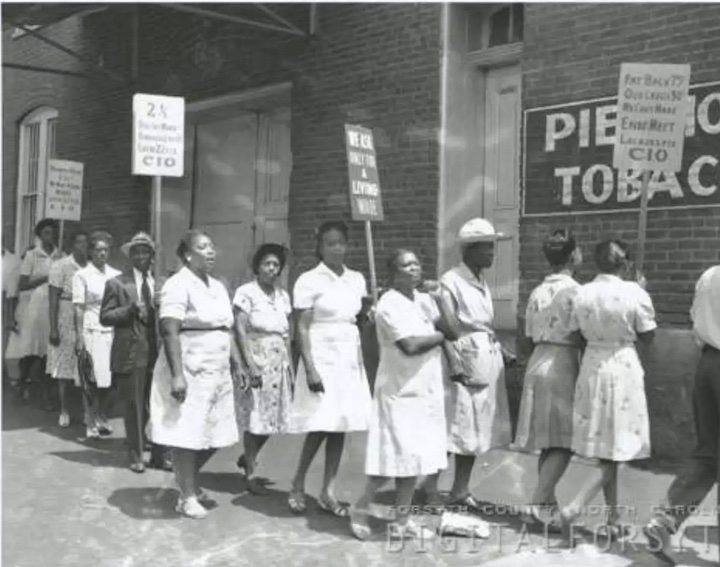|
The Charleston Cigar Factory Strike
|
|
|
 Apr. 12, 2024 | LABOR HISTORY | The Charleston Cigar Factory Strike was a labor strike that involved workers at the Charleston Cigar Factory in Charleston, South Carolina, from October 22, 1945, to April 1, 1946. The strike resulted from the company refusing to institute raises and racial discrimination. The modern version of the gospel hymn and civil rights anthem that would become popular in the 1960s, We Shall Overcome, was first performed by striking worker Lucille Simmons, during the strike. The strike began on October 1, 1945, when Harold F. McGinnis, manager of the Cigar Factory, fired a Black male worker after a White female supervisor accused him of taking familiarities with Black female workers. Most of the Black women workers at the factory, who comprised 60% of the workforce, viewed the firing as racially motivated. BlackPast.org Apr. 12, 2024 | LABOR HISTORY | The Charleston Cigar Factory Strike was a labor strike that involved workers at the Charleston Cigar Factory in Charleston, South Carolina, from October 22, 1945, to April 1, 1946. The strike resulted from the company refusing to institute raises and racial discrimination. The modern version of the gospel hymn and civil rights anthem that would become popular in the 1960s, We Shall Overcome, was first performed by striking worker Lucille Simmons, during the strike. The strike began on October 1, 1945, when Harold F. McGinnis, manager of the Cigar Factory, fired a Black male worker after a White female supervisor accused him of taking familiarities with Black female workers. Most of the Black women workers at the factory, who comprised 60% of the workforce, viewed the firing as racially motivated. BlackPast.org
|
|
|
|